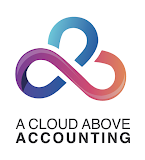As a small business owner, you know that maintaining a healthy cash flow is crucial for your company’s success. One key aspect of this is effectively managing your accounts receivable. Accounts receivable management services can help you streamline your accounts receivable process, improve cash flow, and free up your time to focus on growing your business.

Understanding Accounts Receivable
Before we look at the benefits of accounts receivable management services, let’s clarify what accounts receivable actually means. Simply put, accounts receivable represents the money owed to your business by customers who have purchased goods or services on credit. It’s essentially an IOU from your clients.
Managing accounts receivable effectively is crucial because it directly impacts your cash flow. When customers delay payments, it can create a ripple effect, affecting your ability to pay suppliers, employees, and other operational expenses. This is why having a solid accounts receivable process is so important.
The Accounts Receivable Process
The accounts receivable process involves several steps:
- Invoicing: Creating and sending invoices to customers for goods or services provided.
- Tracking: Monitoring outstanding invoices and payment due dates.
- Collection: Following up on overdue payments and implementing collection strategies.
- Recording: Accurately documenting payments received and updating customer accounts.
- Reporting: Generating reports to analyze accounts receivable performance and trends.
Each of these steps plays a critical role in maintaining a healthy cash flow for your business. However, managing this process can be time-consuming and complex, especially as your business grows.
Benefits of Accounts Receivable Management Services
Outsourcing your accounts receivable management can have numerous benefits:
- Improved Cash Flow: Professional services can speed up the collection process, resulting in faster payments and improved cash flow.
- Time Savings: By delegating accounts receivable tasks, you free up time to focus on core business activities and growth strategies.
- Expertise and Best Practices: Professionals bring specialized knowledge and industry best practices to optimize your accounts receivable process.
- Advanced Technology: Many services use sophisticated software for invoicing, tracking, and reporting, which may be cost-prohibitive for small businesses to implement on their own.
- Scalability: As your business grows, accounts receivable management services can easily scale to handle increased volume without you needing to hire additional staff.
- Reduced Errors: Professional services have systems in place to minimize errors in invoicing and recording payments, reducing disputes and delays.
By using cloud accounting services, you can further enhance the efficiency of your accounts receivable management. These services provide real-time access to your financial data, making it easier to track payments and manage your cash flow.
Accounts Receivable Procedures
Here are some essential strategies for improving your accounts receivable management:
- Establish clear credit policies: Implement a clear credit policy outlining credit limits, payment terms, and late payment fees.
- Send invoices promptly: MAke sure invoices are sent accurately and promptly after goods or services are delivered.
- Offer convenient payment options: Provide customers with multiple payment options, such as online portals, credit card processing, or check by mail.
- Follow up consistently: Send timely reminders and follow up with customers who have overdue payments.
- Consider using automation tools: Use technology to streamline accounts receivable processes and reduce manual tasks.
- Train your staff: Educate your employees on best practices for accounts receivable management and customer communication.
Implementing these best practices can be challenging, especially if you’re dealing with bookkeeping catch up services to get your financial records in order. Professional services can help you establish and maintain these best practices effectively.

How to Manage Accounts Receivable Effectively
By following these best practices, you can improve your cash flow, reduce administrative burdens, and strengthen your customer relationships.
1. Establish Clear Credit Policies
- Set credit limits: Determine the maximum amount of credit you’re willing to extend to customers based on their financial stability and payment history.
- Define payment terms: Clearly communicate your payment terms, including due dates and late fees.
- Require credit applications: Before granting credit, require customers to complete credit applications to assess their financial standing.
2. Issue Invoices Promptly and Accurately
- Generate invoices immediately: Send invoices promptly after goods or services are delivered to avoid delays in payment.
- Ensure accuracy: Double-check invoices for errors in product descriptions, quantities, or pricing to prevent disputes.
- Provide clear instructions: Include clear payment instructions on your invoices, such as payment methods and due dates.
3. Offer Convenient Payment Options
- Online payments: Provide customers with the option to pay online through a secure portal.
- Multiple payment methods: Accept various payment methods, such as credit cards, checks, or electronic transfers.
- Payment discounts: Consider offering discounts for early payment to incentivize timely payments.
4. Follow Up Consistently
- Send reminders: Send friendly reminders to customers with overdue payments, emphasizing the due date and consequences of late payment.
- Personalize communication: Tailor your follow-up messages to each customer, addressing their specific concerns or questions.
- Escalate as needed: If a customer remains unresponsive after multiple attempts, escalate the matter to a supervisor or collection agency.
5. Track AR Aging
- Monitor aging reports: Regularly review your accounts receivable aging reports to identify overdue accounts and take appropriate action.
- Segment accounts: Categorize accounts based on their age to prioritize follow-up efforts and identify potential write-offs.
- Set collection targets: Establish clear goals for collecting overdue payments within specific timeframes.
6. Address Disputes Promptly
- Investigate claims: Thoroughly investigate any disputes or discrepancies raised by customers.
- Communicate effectively: Maintain open and transparent communication with customers throughout the dispute resolution process.
- Resolve issues fairly: Strive to resolve disputes in a mutually satisfactory manner.
7. Consider Outsourcing Accounts Receivable Management
- Evaluate your resources: If you’re struggling to manage accounts receivable effectively or lack the necessary expertise, consider outsourcing to a professional firm.
- Benefits of outsourcing: Outsourcing can save time, improve cash flow, and reduce administrative burdens.
- Choose a reputable provider: Research and select a reputable accounts receivable management firm with a proven track record.
Accounts Receivable Process Improvement Ideas
If you’re looking to enhance your current accounts receivable process, consider these improvement ideas:
- Automate Invoicing: Use software to automatically generate and send invoices, reducing manual work and potential errors.
- Implement a Customer Portal: Provide customers with a self-service portal where they can view and pay invoices online.
- Offer Early Payment Discounts: Encourage prompt payments by offering small discounts for early payment.
- Use Data Analytics: Analyze payment trends to identify high-risk customers and adjust credit terms accordingly.
- Streamline Internal Communication: Make sure there is clear communication between sales, accounting, and customer service teams to address issues quickly.
Implementing these improvements can significantly enhance your accounts receivable process. However, it requires time, resources, and expertise. Professional cloud bookkeeping services can be particularly beneficial, helping you implement and maintain these improvements efficiently.
Choosing the Right Accounts Receivable Management Service
When selecting an accounts receivable management service, consider the following factors:
- Experience and Expertise: Look for a provider with a proven track record in your industry.
- Technology: Make sure they use up-to-date, secure technology for managing accounts receivable.
- Customization: The service should be able to tailor their approach to your specific business needs.
- Communication: Choose a provider that offers clear, regular communication and reporting.
- Integration: The service should integrate smoothly with your existing accounting systems.
The goal is to find a partner who can help you streamline your accounts receivable process and improve your overall cash flow management. As highlighted in our article on ‘How Accurate Bookkeeping Can Improve Cash Flow Management’, effective financial management is crucial for business success.
The Impact of Effective Accounts Receivable Management
Effective accounts receivable management improves cash flow, enhances customer relationships, reduces bad debt, increases profitability, and provides growth opportunities. Clear communication and consistent follow-ups enhance customer expectations, while proactive management helps identify potential issues early, ensuring smooth operations.
For small businesses, in particular, these benefits can be game-changing. Our guide on small business bookkeeping offers more insights into financial management for growing companies.
How Accounts Receivable Management Services Work
When you use accounts receivable management services, they usually follow a structured approach:
- Initial Assessment: They’ll review your current processes, identify areas for improvement, and develop a customized strategy.
- Implementation: The service provider will implement new processes and technologies to streamline your accounts receivable management.
- Ongoing Management: They’ll handle day-to-day tasks such as invoicing, payment tracking, and follow-ups.
- Reporting and Analysis: Regular reports will be provided, offering insights into your accounts receivable performance and areas for further improvement.
- Continuous Improvement: As your business evolves, the service provider will adapt strategies to ensure optimal performance.
Every business is unique, and what works for one may not work for another. It’s important to assess your specific needs and choose a solution that aligns with your business goals and resources. Whatever you decide, the key is to have a systematic, proactive approach to ensure your business maintains a healthy cash flow. Contact A Cloud Above Accounting today for a free consultation and learn how our expert services can help your business thrive.
FAQs
The average collection period varies by industry and region, but it’s generally considered healthy to collect payments within 30-60 days.
Common signs include high delinquency rates, frequent disputes, and difficulty tracking invoices.
Conduct thorough credit checks before extending credit, set clear payment terms, and monitor customer accounts closely.
No, businesses of all sizes can benefit from these services, especially small businesses looking to improve their financial management.
Yes, you remain in control. These services work as an extension of your team, following your policies and keeping you informed.
Accounts receivable management is proactive and focuses on the entire invoicing and payment process, while debt collection typically deals with severely overdue accounts.



